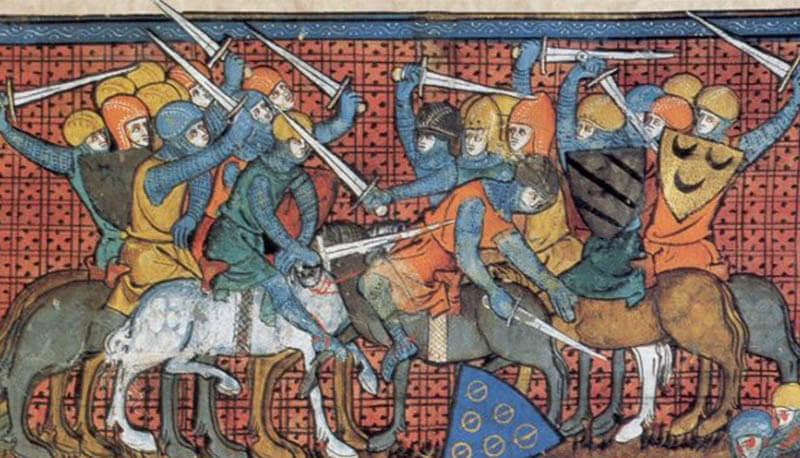Concetti Chiave
- In 1066, William the Conqueror from Normandy defeated the Saxon King Harold at the Battle of Hastings, marking the start of the Middle Ages in England.
- William established a strong feudal system, forcing lords to swear loyalty to him and distributing land based on loyalty and military support.
- Despite imposing the French language, William allowed many English laws and customs to remain, leading to a mix of French and English cultural elements.
- The Norman Conquest introduced architectural influences, evident in the castles and cathedrals built in the Norman style across England.
- The conquest initiated enduring conflicts between English and French kings over territories, significantly impacting political dynamics in both countries.
Indice
L'inizio del sistema feudale inglese
There’s one year in the English history that masks the very beginning of Middle Ages strong feudal system. In 1066 William The Conqueror, duke of Normandy, crossed the English Channel from France, defeated the Saxon King Harold at the Battle Of Hastings and conquered England. Shortly after William had himself elected King of England. He required all feudal lords to take an oath to him as Supreme Ruler and distributed huge tracts of land to lords who had to prove their loyalty to the crown participating in struggles and wars, if necessary. However ,he permitted the English people to retain many of their own laws and customs, even if e forced them to use the French language. That’s why in the English language there are still many French words.
L'influenza normanna sulla cultura inglese
William kept a careful listing of all property in England for tax purposes and showed no regard for sex when he massacred rebels by the thousand. The development of a strong national state was not the only result of the Norman Conquest; in countryside are many castles and cathedrals built in the Norman style and the customs, manners, dress and literature in England were also strongly influenced by the French.
Conflitti tra re inglesi e francesi
For centuries after the death of William, the English kings were to struggle with the French kings for the control of the French territory.  Similarly, the French kings were to interfere in English politics.
Similarly, the French kings were to interfere in English politics.






 Accedi a tutti gli appunti
Accedi a tutti gli appunti
 Tutor AI: studia meglio e in meno tempo
Tutor AI: studia meglio e in meno tempo